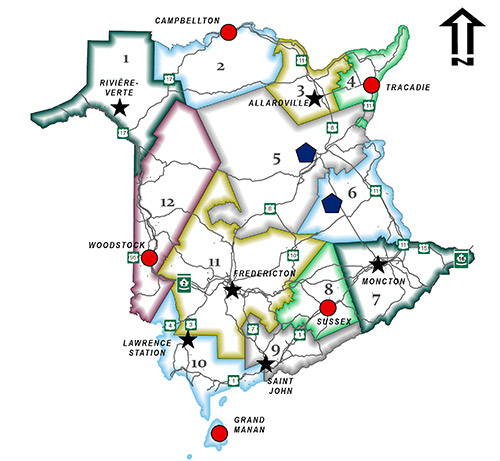Common terms used within the field of solid waste management that are important to know to better understand waste diversion:
- Circular Economy recovers as much value as possible from waste and uses it to produce new products. This reduces the need to extract new materials, reducing the generation of greenhouse gas (GHG) emissions.
- Extended Producer Responsibility (EPR) is an environmental policy approach that extends industry’s responsibility for a product beyond production to include waste management of the product. This creates incentives to produce more environmentally friendly products that can be easily recycled or reused at end-of-life.
- Waste Diversion is the process of keeping materials from being landfilled through reducing, reusing, recycling, composting or by other acceptable processes.
We’ve known the 3 Rs – Reduce, Reuse, and Recycle for generations.
Applying these rules in our daily practices reduces our waste and helps keep materials in the economy longer, a principle of the circular economy. This increased volume of recycled material also reduces the need for the extraction or harvesting of raw materials, reducing the amount of greenhouse gas (GHG) generated. Recycling in New Brunswick is achieved through provincial programs and other initiatives lead by municipalities, rural districts, Regional Service Commissions (RSCs) and some industry organizations.
The Designated Materials Regulation under the Clean Environment Act provides the framework for the management of provincially regulated waste diversion programs. All these programs, apart from the tire stewardship program, use the extended producer responsibility model. Recycle NB is responsible for overseeing the management of waste diversion programs under the Designated Materials Regulation.
Pharmaceutical Products and Medical Sharps
The Pharmaceutical Products and Medical Sharps Program was established in 2022 to ensure the safe and environmentally responsible management and disposal of unused or expired household pharmaceutical products and medical sharps.
Packaging and Paper Products
The Packaging and Paper Products Program was established in 2021 to reduce the amount of waste being landfilled and includes household packaging and paper products.
Electronics
The Electronics Program was established in 2017 to collect and manage electronic waste such as televisions, computers, monitors and video and audio systems.
Oil and Glycol
The Oil and Glycol Program was established in 2014 to collect and manage used oil and glycol, their containers (including aerosol cans) and oil filters.
Paint
The Paint Program was established in 2008 to collect and manage leftover or unwanted paint and paint containers (including aerosol cans).
Tires
The Tire Stewardship Program was established in 1996. Currently, tires are being sent to a New Brunswick processing facility to be turned into value added products (i.e., rubber matting, mulch, pylon bases).
Beverage Containers
The Beverage Containers Program was established in 1992 to reduce the amount of litter along our roadsides and waterways. There are approximately 70 redemption centres in the province where you can bring your beverage container for a refund and recycling.
Reginal Service Commissions (RSC), municipalities and other industry organizations also have requirements or offer services that go beyond what is required by the province.
Some programs, like organics, household hazardous waste and other materials are managed by Regional Service Commissions. For a complete list of available programs in your area visit your Regional Service Commission’s website.
- Northwest Regional Service Commission (RSC 1)
- Restigouche Regional Service Commission (RSC 2)
- Chaleur Regional Service Commission (RSC 3)
- Acadian Peninsula Regional Service Commission (RSC 4)
- Greater Miramichi Regional Service Commission (RSC 5)
- Kent Regional Service Commission (RSC 6)
- Southeast Regional Service Commission (RSC 7)
- Kings Regional Service Commission (RSC 8)
- Fundy Regional Service Commission (RSC 9)
- Southwest New Brunswick Service Commission(RSC 10)
- Capital Regional Service Commission (RSC 11)
- Western Valley Regional Service Commission (RSC 12)
Sometimes municipalities require different waste diversion requirements through by-laws. This may include, but not restricted to, bans on the distribution of specific materials such as single use plastic bags or a requirement to separate organics from recyclables and other waste.
Some industries may offer waste diversion programs for the products they produce. Below is a summary of programs currently offered in New Brunswick.
Household Batteries
Single-use and rechargeable batteries may be disposed of at numerous drop off locations throughout the province.
Automobile Batteries
Automobile batteries are subject to a core charge at sale and may be returned to the point of sale for a refund.
Pesticide Containers
Cleanfarms operate a diversion program for unused pesticides, pesticide containers and seed bags.
Textiles and other household items
Drop off textiles at second-hand stores and bins throughout the province. Other reusable items may be dropped off at second-hand stores.
Bicycle Tires
Bicycle tires can be brought to some local bike shops for recycling.
Glass Jar Recycling
Currently glass jars are recycled in the Moncton area by the Regional Service Commission and in some other areas at a beverage container redemption center.



